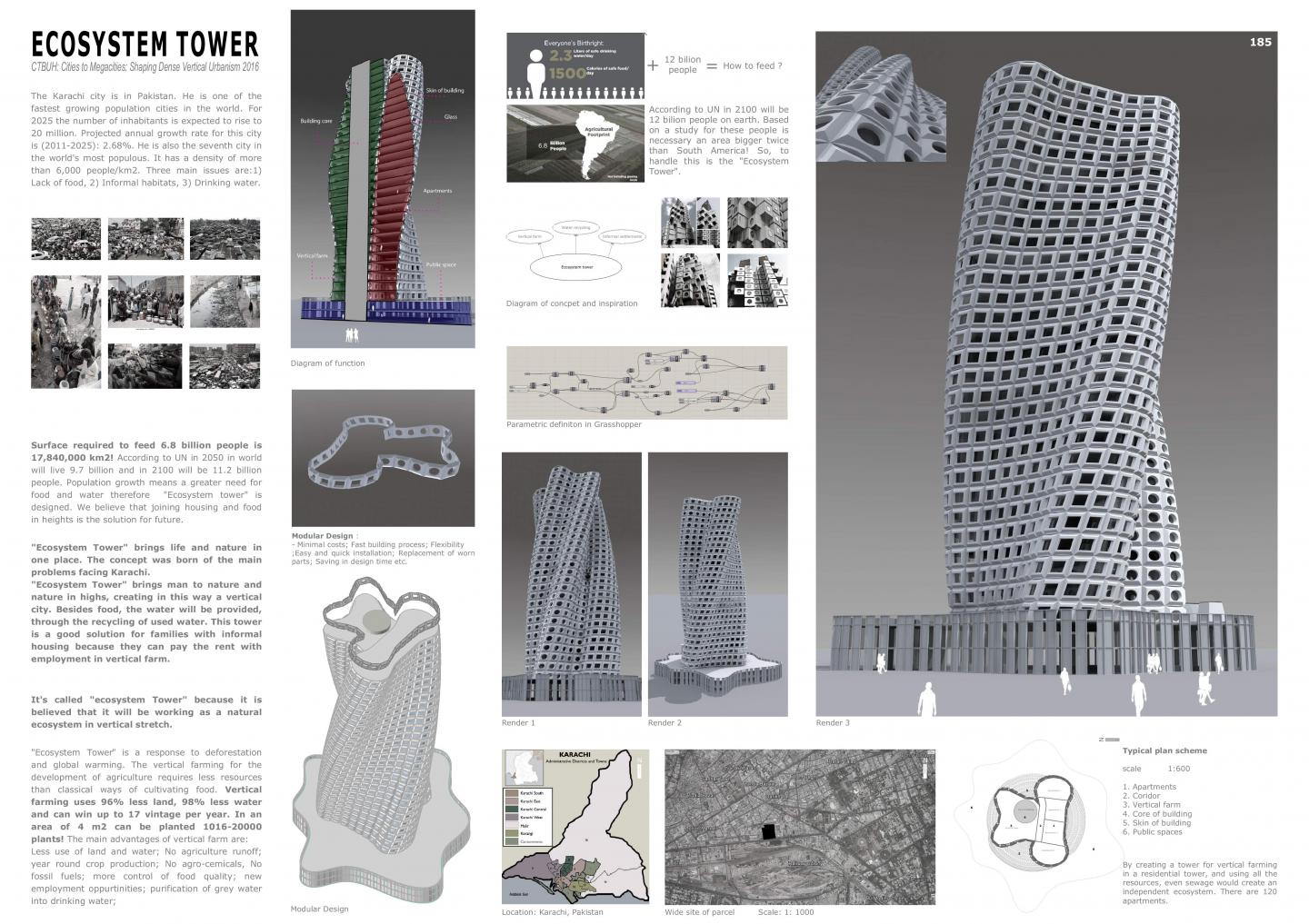"Ecosystem Tower" brings life and nature in one place. The concept was born of the main problems facing Karachi. "Ecosystem Tower" brings man to nature and nature in highs, creating in this way a vertical city. Besides food, the water will be provided, through the recycling of used water. This tower is a good solution for families with informal housing because they can pay the rent with employment in vertical farm. Its called "ecosystem Tower" because it is believed that it will be working as a natural ecosystem in vertical stretch.
2016
The Karachi city is in Pakistan. He is one of the fastest growing population cities in the world. For 2025 the number of inhabitants is expected to rise to 20 million. Projected annual growth rate for this city is (2011-2025): 2.68%. He is also the seventh city in the worlds most populous. It has a density of more than 6,000 people/km2. Three main issues are:1) Lack of food, 2) Informal habitats, 3) Drinking water.
Surface required to feed 6.8 billion people is 17,840,000 km2! According to UN in 2050 in world will live 9.7 billion and in 2100 will be 11.2 billion
people. Population growth means a greater need for food and water therefore "Ecosystem tower" is designed. We believe that joining housing and food in heights is the solution for future.
"Ecosystem Tower" is a response to deforestation and global warming. The vertical farming for the development of agriculture requires less resources
than classical ways of cultivating food. Vertical farming uses 96% less land, 98% less water and can win up to 17 vintage per year. In an area of 4 m2 can be planted 1016-20000 plants! The main advantages of vertical farm are: Less use of land and water; No agriculture runoff;
year round crop production; No agro-cemicals, No fossil fuels; more control of food quality; new employment oppurtinities; purification of grey water
into drinking water.


